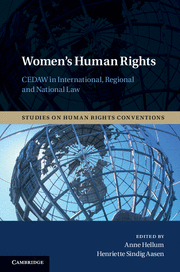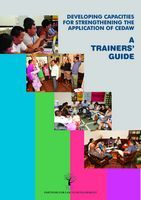About fifteen years ago, when a colleague joined my office, she was aghast with what she heard in the Court on the very first day of work. It was a matrimonial case and the Judge simply was forcing the wife to go back to her husband although she was completely unwilling. It was brought to the notice of the Judge that there had been severe physical violence and hence forcing the wife to go back could be dangerous to the life of the wife. And what was the Judge’s response? “Women should be beaten up in the morning, afternoon and night”. Mercifully, the Judge whose erratic behavior had rankled many a lawyer was shown the door but not until a couple of years later.
Today, most Judges do not utter such statements, but, of course, in a patriarchal society, where the judiciary is a product of the very society that throws them up, one does still find traces of patriarchal outlooks. A recent sexist outburst by a Judge of the Karnataka High Court had a ripple effect of annoyance across the country resulting in a national campaign that prompted Union Law Minister Salman Khurshid to state “We are in the middle of formulating certain rules where such statements be discouraged while maintaining the dignity of the courts at the same time. It is a delicate matter. I would not get into specifics, but we are in touch with higher judiciary.” The response from the side of the higher Judiciary has been to shift all family court matters, including child custody and guardianship, from him and another judge.
“Women suffer in all marriages. You are married with two children and know what it means to suffer as a woman… Your husband is doing good business. He will take care of you. Why are you still talking about his beatings,” Justice Bhaktavatsala, the Karnataka High Court Judge, had remarked. The Judge is reported to have then pointed towards the female judge, Justice B S Indrakala, sitting next to him, suggesting to the lawyer, “I know you have undergone pain. But that is nothing in front of what you undergo as a woman. I have not undergone such pain. But madam (Justice Indrakala) has.” The message therefore from such remarks is: BEAR IT. ADJUST. Time was when this is what the local priest or the woman’s own family told her, until some realised the harsh consequences of asking their counselees or kin to adjust. The women were reduced to vegetables or just gone from the face of the earth.
There are as a matter of fact some judgements of yore and still some arguments advanced even this day in the Courts about “small beatings”. Advocates arguing cases of domestic violence make it seem that it is natural for a man to beat his wife in certain circumstances, and even go further to suggest that in most communities and backgrounds, slapping or assaulting a wife means nothing. They are in fact echoing what some early twentieth century judgements have set out at a time when the court jurisprudence had not advanced to keep pace with the substantive equality concept in the Constitution of India. One such Judgement coming from Chennai said “small beatings may not be legal cruelty”. Researcher and law teacher Usha Ramanathan who has documented many such “limits to judicial tolerance of a man venting his spleen on his wife” as reflected in Court Judgements, some of which are set out in her article on “Images (1920-1950”.
An apt retort to Justice Bhaktavatsala in social terms, would have been what book author Kishwar Desai has once stated “All of us go through pain. We must not inflict it.” But the systems being what they are, there is little scope for a lawyer or a public spirited citizen to retort to a judge. A Judicial Standards and Accountability Bill was passed by Lok Sabha on 29th March, 2012. As per this Bill, a judge must not have bias in his judicial work or judgments on the basis of religion or race or caste or sex or place of birth. “The Citizens of India look to the Court to protect their right to equality, dignity and liberty. Judges must keep this constitutional mandate in mind of being the protectors of the Constitution, even as they perform their duty to interpret the law. Thus judges do not have a free reign to give expression to their own private morality or even the morality of the wider public, but rather have a duty to interpret the law in the light of the Constitution. Judges are bound by what the Founding Father of the Indian Constitution, Dr. B.R. Ambedkar describes as constitutional morality.”, a representation from women’s groups and concerned citizens in the wake of this Bhaktavatsala outburst states. The representation in fact makes a reference to the Constituent Assembly debates where Dr. Ambedkar is reported to have stated that Democracy in India is only a top dressing on an Indian soil which is essentially undemocratic and urging therefore that constitutional morality is not a natural sentiment but has to be cultivated. The representation has called upon the Chief Justice of the Karnataka High Court to send out the message that no Judge can so easily betray the mandate of the Constitution to ensure equality of gender and has called for setting up a Commission to look at gender bias within the judiciary.
Madhu Mehra, a guest trainer at the National Judicial Academy, writing in ‘Exploring the Boundaries” points out that in setting the boundaries of the offence of cruelty, the legal discourse makes allowance for a range of violence within the matrimonial home, thereby legitimizing it. Women’s groups and men’s groups supporting women’s rights are now looking for some definitive action to deter other judicial magistrates and judges using intimidatory tactics or abusive/insulting language against women in Courts. Towards that, all such instances are being documented. This as a matter of fact, must lead up to what a well known South Asian Judge Shiranee Tilakawardane refers to as social context education for the judiciary. As Justice Shiranee has well said, “To bring about effective change, one has to first identify and lay open prejudices and biases as and when they occur, giving effective tools for judges themselves to be aware of their own prejudices”. In some ways, some Taluka Legal Service Committees have shown the way. Kerala’s Kothamangalam Taluka Legal Services Committee, supported by the National Legal Services Authority for instance, has a Dove Mission and a Kutty Mission, whose objective is to take necessary steps for preventing and eradicating domestic violence in Kothamangalam Taluka.
By Albertina Almeida
This article appeared in the Herald, Goa, page 8, October 13, 2012.
TAGS: Culture/Religion, Family, VAW










